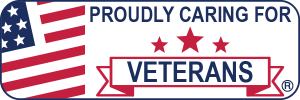Many people are turning to acupuncture and natural remedies for allergy relief
Are you among the 50 million people in the United States who suffer from allergic rhinitis or sinusitis, with itchy watery eyes, dripping noses, aching heads and sinus congestion?
When your sinuses (the air-filled hollow cavities around your nose and nasal passages) become inflamed, fluid can accumulate and interfere with normal drainage of mucus. When this happens it’s called acute sinusitis. You may have trouble breathing through your nose, and feel your eyes and facial tissue swell.
Symptoms may also include a headache, fever, cough, post-nasal drip, a thick green or yellow discharge, and a feeling of facial “fullness” that increases when you lean forward. A toothache can also occur during a severe sinus infection.
There are many causes of these symptoms including bacterial, viral, and fungal infections; allergies or a deviated septum. Symptoms with allergic rhinitis, commonly referred to as hay fever, is the inflammatory result of your immune system’s overreaction to allergens in the air. Pollen is one offender, but others include dirt, pollution, animal hair, cloth fibers, and mold.
Acupuncture treatment can relieve allergies by boosting the immune system, decreasing inflammatory responses and symptoms.
In addition to acupuncture, there are also natural ways to help you combat the springtime allergy season.
Clear your sinuses and your mind with a steamy stovetop spa. Add a few drops of wintergreen oil to a pot of boiling water and inhale the steam. Take care not to be burned by the vapor.
Ginger, scallion, basil, garlic, oregano, cayenne pepper, white pepper, horseradish and turmeric are very good at unblocking your sinus passageways.
The supplement bromelain – a papaya and pineapple-based enzyme – helps reduce histamine release, the body’s natural allergic response.
Daily, use this solution to clear your nasal passageways: 1 tsp sea salt, 1 drop of wintergreen oil to 1 cup of warm water. Fill a small-spouted bottle with this warm solution. Squirt into one nostril at a time and blow out through the nose, alternate nostrils.
Wash nostrils with warm salt water. Soak a clean cotton ball in the following mixture: 1 clove of pressed garlic and 1 tsp olive oil. Place cotton balls in nostrils and leave in for 20 minutes. Repeat three times a day until the symptoms clear up.
Try these massage practices to relieve sinus congestion.
Sit at the tip of a sturdy chair with your back erect, spine stretched, and your head tilted slightly forward:
- Inhale and gently press your forehead just inside the temples with your palms. Exhale and release. Repeat three times.
- Cross your middle and index fingers by placing the tips of your middle fingers on top of the fingernails on your index fingers. Rub the sides of your nose 36 times in a circular motion. (Warm your fingers first if they’re cold.)
What you eat does affect your sinus health. Avoid foods that produce mucous and dampness: dairy products, cold and raw foods, corn (including corn syrup), and simple sugars. Choose whole grains like quinoa, amaranth and brown rice instead of wheat, rye and barley, which are typically high allergy grains. Opt for papaya, cranberries, pear, pineapple, cherries, mango, and citrus fruits. Eat more green vegetables such as spinach, broccoli, kale, and Brussels sprouts.
Both alcohol and smoking irritate the respiratory tract and amplify nasal inflammation, so avoid them during sinus flare-ups. Stress and lack of sleep can also worsen your sinus congestion, so be sure to get plenty of quality sleep, and keep your stress level low.
*Of course, do not use any of the above-mentioned foods or products if you are allergic to them.

